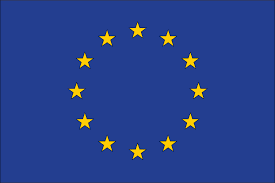Chemycal has been acquired by 3E
Learn MoreChemycal has been acquired by 3E
Learn MoreDiscover how Chemycal PRO helps you boosting your regulatory monitoring:

The European Union has introduced a new regulation concerning batteries and waste batteries, aimed at promoting resource efficiency and reducing carbon emissions. The regulation is part of the European Green Deal and includes key provisions for the production and disposal of batteries in the EU. Businesses and consumers are encouraged to take steps to comply with the regulation and promote sustainability. This move is expected to have a significant impact on the battery industry and contribute to the EU's efforts to combat climate change
What are the key provisions of the EU Regulation on batteries and waste batteries?
The EU Regulation on batteries and waste batteries includes several key provisions aimed at promoting resource efficiency and reducing carbon emissions. These provisions include requirements for the labeling and performance of batteries, as well as rules for the management and disposal of waste batteries. The regulation also establishes extended producer responsibility, which requires battery manufacturers to take responsibility for the entire lifecycle of their products, from production to disposal. Additionally, the regulation aims to prevent and reduce the adverse impacts of waste batteries on human health and the environment, and to promote the practical application of the waste hierarchy.
How will this regulation impact the production and disposal of batteries in the EU?
The EU Regulation on batteries and waste batteries is expected to have a significant impact on the production and disposal of batteries in the EU. The regulation includes requirements for the labeling and performance of batteries, which will likely lead to increased transparency and consumer awareness. The establishment of extended producer responsibility will also require battery manufacturers to take responsibility for the entire lifecycle of their products, which may lead to changes in production processes and product design. Additionally, the regulation includes rules for the management and disposal of waste batteries, which will likely lead to increased recycling and reduced environmental impact. Overall, the regulation is expected to promote resource efficiency and reduce carbon emissions in the battery industry.
What steps can businesses and consumers take to comply with this regulation and promote sustainability?
Businesses and consumers can take several steps to comply with the EU Regulation on batteries and waste batteries and promote sustainability. For businesses, it is important to ensure that batteries are labeled and designed in compliance with the regulation, and to establish systems for the collection and recycling of waste batteries. Businesses can also work to reduce the environmental impact of their operations by adopting sustainable practices and investing in renewable energy. For consumers, it is important to properly dispose of waste batteries by recycling them at designated collection points. Consumers can also choose to purchase batteries that are labeled and designed in compliance with the regulation, and to reduce their overall consumption of batteries by using rechargeable batteries or alternative power sources. Overall, promoting sustainability requires a collective effort from businesses, consumers, and policymakers, and the EU Regulation on batteries and waste batteries is an important step towards achieving this goal.
2013 © MyChemicalMonitoring. ALL Rights Reserved. About Us | Terms and Conditions